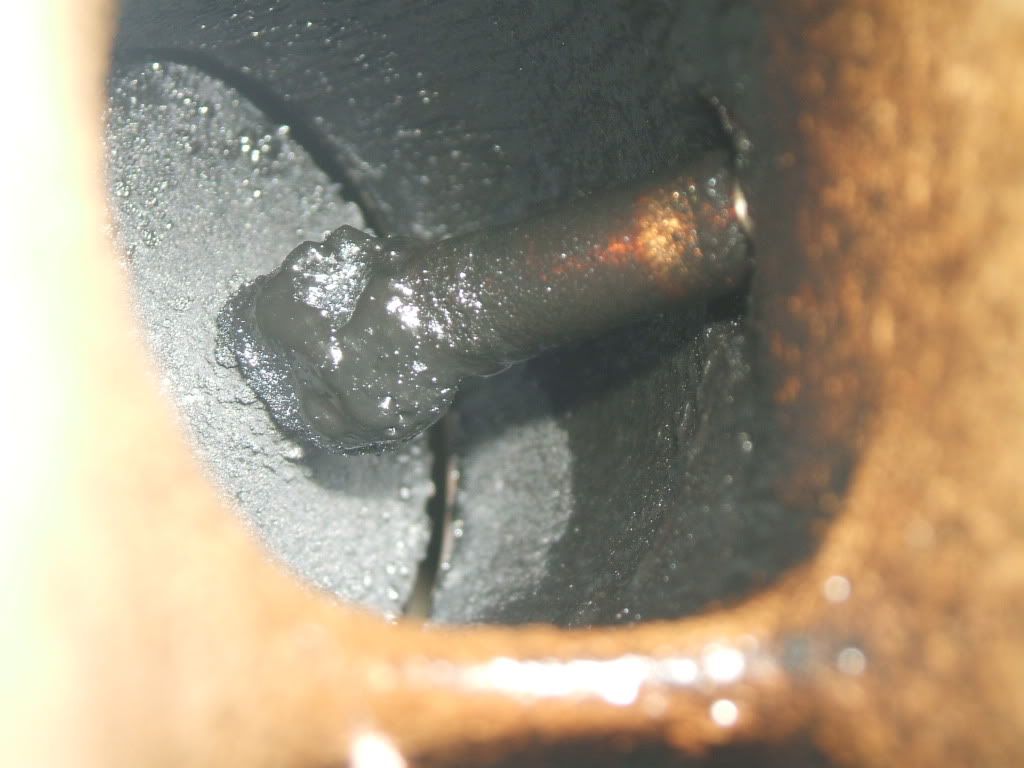DFI engine issues?
#3
I have been observing this as well; and it doesn't well for Direct Injection (DI). It makes the argument to stick with the much more reliable GT1 block (sans DI) in the Turbo/GT models.
However two things that I am thinking about (but don't have answers for, yet):-
1) Manufacturers are not stupid, offer extended warranties etc., so they would not expose themselves to a ticking time bomb. therefore is this issue overblown?
2) Direct injection has been around in diesels for a long time, and the longevity of those engines is legendary. So what is different?
As an aside for track activities many sanctioning bodies prohibit high pressure fuel systems (DI) for obvious reasons, so maybe this is non-issue for many here.
However two things that I am thinking about (but don't have answers for, yet):-
1) Manufacturers are not stupid, offer extended warranties etc., so they would not expose themselves to a ticking time bomb. therefore is this issue overblown?
2) Direct injection has been around in diesels for a long time, and the longevity of those engines is legendary. So what is different?
As an aside for track activities many sanctioning bodies prohibit high pressure fuel systems (DI) for obvious reasons, so maybe this is non-issue for many here.
#5
As I have said before, all Porsche engines have an issue or two. Just give them some time to find out what on the DI engines becomes a serious issue, vice a minor irritant. Let's just wait and see.
#7
There's also this THREAD discounting the issue... 

It's widely accepted that when a basically all-new engine or component is introduced, there will be teething problems unforeseen by the manufacturer until it's used in the real world.
That's why it's always a good rule of thumb to wait until the next production cycle to buy something brand new, as this DFI engined 997, so that major bugs can be worked out by then.
I seriously doubt this gunk problem will surface on the 911 engines. Isn't the compression ratio much higher on these engines than on the Cayenne's?
Trending Topics
#8
With a DI engine, if there is a buildup of "gunk" on the intake valves and stems, it must be coming from the crankcase ventilation or exhaust gas recirculation if either of these are part of the design. Otherwise, there is just air coming into the cylinder. If that photo is from a DI engine my guess is that it is coming from the crankcase which could mean there is some blow by.
#10
Nice....great for product reliability and a clean enviroment.
My car soots up the exhaust tips like h*ll Porsche has a could car less atitude about these issues.
Corvette Z06 is looking better and better...too bad Vette does not have a dlual clutch type of transmission.
My car soots up the exhaust tips like h*ll Porsche has a could car less atitude about these issues.
Corvette Z06 is looking better and better...too bad Vette does not have a dlual clutch type of transmission.
#11
With a DI engine, if there is a buildup of "gunk" on the intake valves and stems, it must be coming from the crankcase ventilation or exhaust gas recirculation if either of these are part of the design. Otherwise, there is just air coming into the cylinder. If that photo is from a DI engine my guess is that it is coming from the crankcase which could mean there is some blow by.
#13
Take a look at this THREAD discussing severe gunk buildup on Cayenne DFI engine's valves.
Will 997.2's 9A1 engines develop this?
Will 997.2's 9A1 engines develop this?
#14
Whats missing form the image (too lazy to see if the thread indicated has it discussed) is how the car was driven and fueled, and that has a lot of impact on what the inside of an engine can look like. If that engine never gets to get up to good operating temps for an extended bit of time because its a 'kids to school and soccer practice' minivan in its use, then I'm sure you will gunk the heck out of any engine.
#15
And some 997.2 owners reported exceptionally large amount of soot from the exhaust worried me a little. Consider these cars are virtually new, and if there is already that much soot in the exhaust guess how much would be around the intake valves...
Regards,
Regards,



